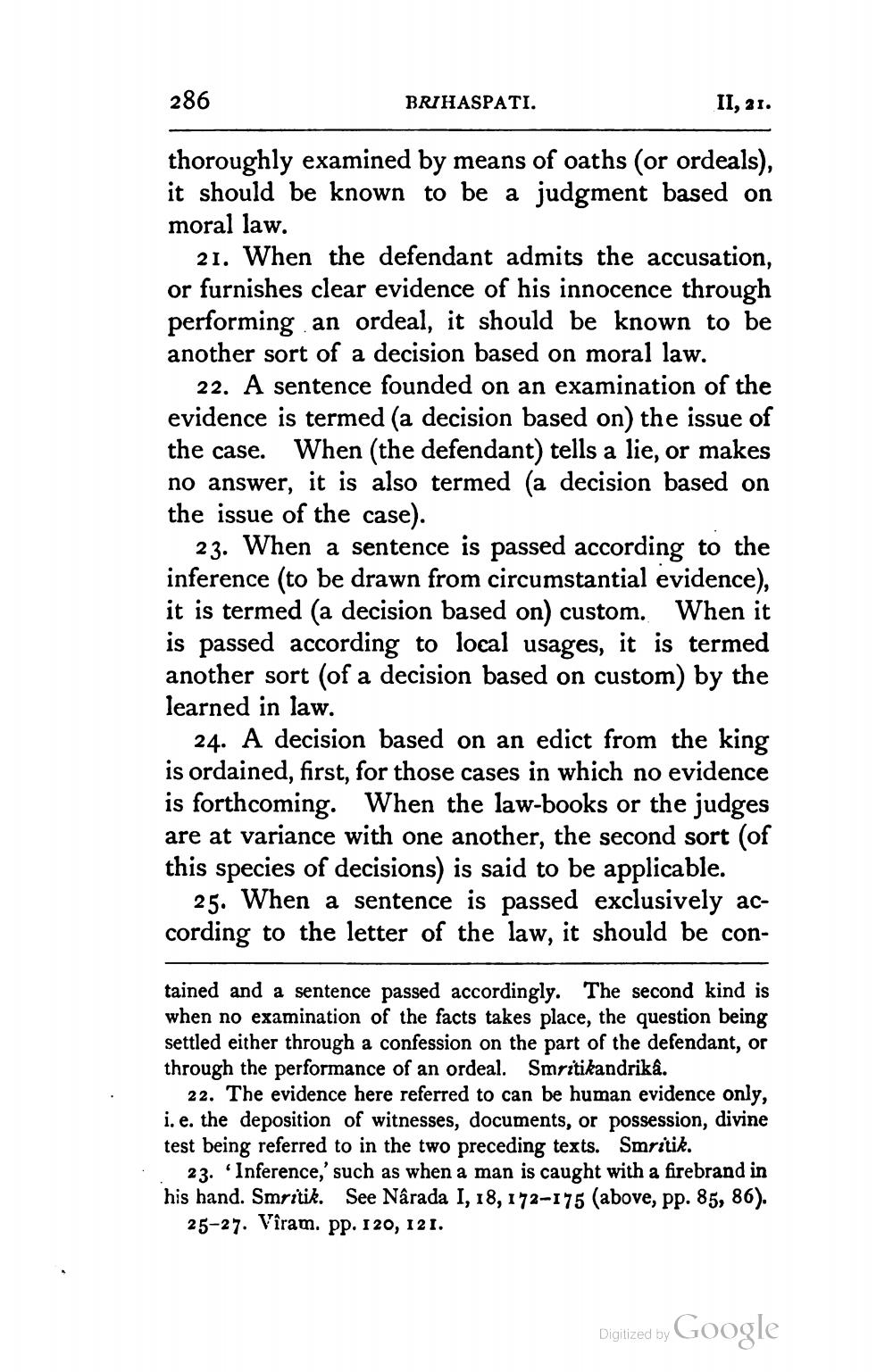________________
286
BRIHASPATI.
II, 21.
thoroughly examined by means of oaths (or ordeals), it should be known to be a judgment based on moral law.
21. When the defendant admits the accusation, or furnishes clear evidence of his innocence through performing an ordeal, it should be known to be another sort of a decision based on moral law.
22. A sentence founded on an examination of the evidence is termed (a decision based on the issue of the case. When the defendant) tells a lie, or makes no answer, it is also termed (a decision based on the issue of the case).
23. When a sentence is passed according to the inference (to be drawn from circumstantial evidence), it is termed (a decision based on) custom. When it is passed according to local usages, it is termed another sort (of a decision based on custom) by the learned in law.
24. A decision based on an edict from the king is ordained, first, for those cases in which no evidence is forthcoming. When the law-books or the judges are at variance with one another, the second sort (of this species of decisions) is said to be applicable.
25. When a sentence is passed exclusively according to the letter of the law, it should be con
tained and a sentence passed accordingly. The second kind is when no examination of the facts takes place, the question being settled either through a confession on the part of the defendant, or through the performance of an ordeal. Smritikandrika.
22. The evidence here referred to can be human evidence only, i. e. the deposition of witnesses, documents, or possession, divine test being referred to in the two preceding texts. Smritik.
23. Inference,' such as when a man is caught with a firebrand in his hand. Smritik. See Narada I, 18, 172-175 (above, pp. 85, 86).
25-27. Vîram. pp. 120, 121.
Digitized by Google




